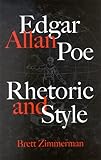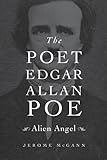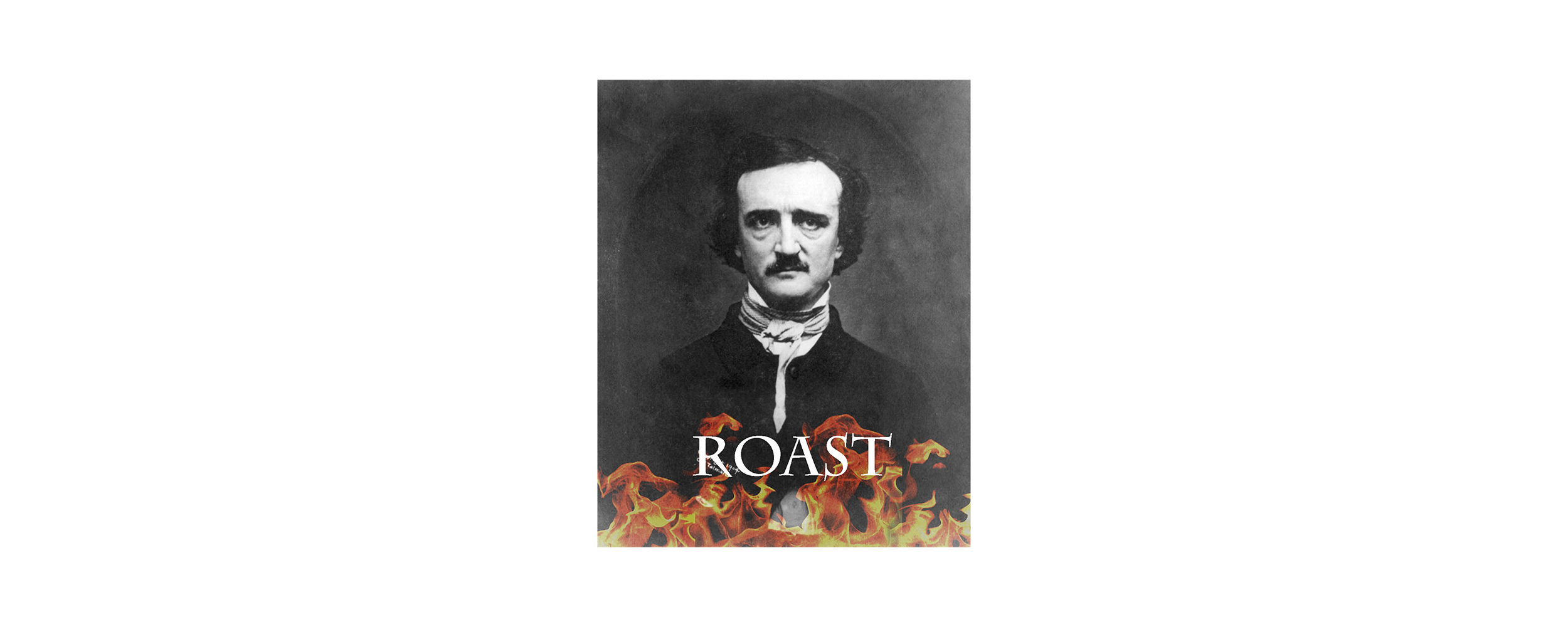“The thousand injuries of Fortunato I had borne as best I could, but when he ventured upon insult I opened a Google doc and started keeping track.” That’s how the story goes, right?

 Well, no, but isn’t it high time we made a list of all the worst insults lobbed at Edgar Allan Poe? Seems like once every decade or so, some eminent, eloquent critic comes out with an article summarizing the widespread negative view of Poe among Poe’s contemporaries and in academia and the higher reaches of arts and letters. Richard Wilbur, Karl Miller, and Kevin Jackson, for instance, all made excellent contributions to the field of Poe apologetics (apoelogetics?). You also have the brilliant book-length defenses: Brett Zimmerman’s indispensable Edgar Allan Poe: Rhetoric and Style (2005) and Jerome McGann’s magnificent The Poet Edgar Allan Poe: Alien Angel (2015). And yet, for all the tea that’s been spilled, no one’s ever made a ranked list of the most piquant remarks—the rudest, most spiteful and biting criticisms.
Well, no, but isn’t it high time we made a list of all the worst insults lobbed at Edgar Allan Poe? Seems like once every decade or so, some eminent, eloquent critic comes out with an article summarizing the widespread negative view of Poe among Poe’s contemporaries and in academia and the higher reaches of arts and letters. Richard Wilbur, Karl Miller, and Kevin Jackson, for instance, all made excellent contributions to the field of Poe apologetics (apoelogetics?). You also have the brilliant book-length defenses: Brett Zimmerman’s indispensable Edgar Allan Poe: Rhetoric and Style (2005) and Jerome McGann’s magnificent The Poet Edgar Allan Poe: Alien Angel (2015). And yet, for all the tea that’s been spilled, no one’s ever made a ranked list of the most piquant remarks—the rudest, most spiteful and biting criticisms.
So I give you my own version, from mildest to meanest, while inviting you to vote for what you think is the absolute worst insult here and to arrange your own ranked list. Feel free, too, to add any insults I’ve left out—because what you’ll find below is not by any means comprehensive. Caesar himself was stabbed just 23 times, whereas with Poe, I’ve found you either stop the count at 25 or begin to lose your taste for the exercise.
- Mark Twain
“To me [Poe’s] prose is unreadable—like Jane Austin‘s [sic]. No there is a difference. I could read his prose on salary, but not Jane’s.”
- Kevin Jackson
“One might go so far as to say that Poe is the worst writer ever to have had any claim to greatness.”
- Allen Tate
“Poe’s serious style at its typical worst makes the reading of more than one story at a sitting an almost insuperable task.”
- Aldous Huxley
“To the most sensitive and high-souled man in the world we should find it hard to forgive, shall we say, the wearing of a diamond ring on every finger. Poe does the equivalent of this in his poetry; we notice the solecism and shudder.”
- W.B. Yeats
“I admire a few lyrics of his extremely and a few pages of his prose, chiefly in his critical essays, which are sometimes profound. The rest of him seems to be vulgar and commonplace.”
- Edith Wharton
“That drunken and demoralized Baltimorean…”
- T.S. Eliot
“That Poe had a powerful intellect is undeniable: but it seems to me the intellect of a highly gifted person before puberty.”
- H.L. Mencken
“[Poe was] a genius, and if not of the first rank, then at least near the top of the second—but a foolish, disingenuous and often somewhat trashy man.”
- Henry James
“An enthusiasm for Poe is the mark of a decidedly primitive stage of reflection.”
- Rufus W. Griswold
“Poe exhibits scarcely any virtue in either his life or his writings. Probably there is not another instance in the literature of our language in which so much has been accomplished without a recognition or a manifestation of conscience.”
- John Frankenstein:
You, drunken mad-dog, EDGAR ALLAN POE —
Is it my fault that I must call you so?
Your works, like you, are born of alcohol;
Horrid monstrosities, distortions all…” - George Gilfillan
“His heart was as rotten as his conduct was infamous. He knew not what the terms honour and honourable meant. He had absolutely no virtue or good quality, unless you call remorse a virtue and despair a grace. Some have called him mad; but we confess we see no evidence of this in his history. He was never mad, except when in delirium tremens.”
- Yvor Winters
“This is an art to delight the soul of a servant-girl; it is a matter for astonishment that mature men can be found to take this kind of thing seriously.”
- Harold Bloom
“No reader who cares deeply for the best poetry written in English can care greatly for Poe’s verse…I can think of no other American writer, down to this moment, at once so inescapable and so dubious.”
- D.H. Lawrence
“Poe tried alcohol, and any drug he could lay his hand on. He also tried any human being he could lay his hands on.”
- Ralph Waldo Emerson
“The jingle man.”
- Hiram Fuller
“A poor creature…in a condition of sad, wretched imbecility, bearing in his feeble body the evidences of evil lying.”
- William Crary Brownell
“He evinced the singular cleverness of the children of this world…his writings lack the elements not only of great, but of real, literature.”
- Paul Elmer More
“The poet of unripe boys and unsound men.”
- Owen Dudley Edwards
“Endless self-indulgence, wallowing in atmosphere, incessant lecturing, ruthless discourse on whatever took the writer’s fancy, longueurs, trivialisations, telegraphing of punch-lines, loss of plot in effect, loss of effect in plot…In sum, what Poe lacked above all was a sense of his reader.”
- Thomas Dunn English
“The very incarnation of treachery and falsehood.”
- Bryan W. Proctor”
“Edgar Allan Poe was incontestably one of the most worthless persons of whom we have any record in the world of letters.” - Arthur Twining Hadley
“Poe wrote like a drunkard and a man who is not accustomed to pay his debts.”
- George Orwell
“At worst…not far from being insane in the literal clinical sense.”
- W.H. Auden
“An unmanly sort of man whose love-life seems to have been largely confined to crying in laps…”
You wonder: Why exactly has Poe, among all American writers, proven such a popular shooting target? This list, as you’ve seen, reads like a virtual Literary Who’s Who, beginning with those who knew the man. “Of all men Poe had best reason to pray that he might be delivered from the hands of his friends,” as Atlantic Monthly put it in 1896, referring to Rufus W. Griswold, Poe’s great frenemy, who wrote that hit job of an obit.
Beyond Poe’s contemporaries, you have the down-their-noses sneering of highbrow literary figures and would-be highbrow literary figures, together composing what Brett Zimmerman called “the smog of critical hostility that hangs over the Poe canon.” The choicest example, or so I think, is Harold Bloom’s nasty 1984 essay in The New York Review of Books, not only indefensibly snotty in tone but also a grievous sin against hospitality because Bloom used the same piece as the introduction to the 1985 Modern Critical Views edition of Poe’s work. And while dude claims to be speaking of Poe, but “The Inescapable Poe” is more accurately the inescapable Bloom. It’s the ne plus ultra of literary get-off-my-lawns.
On the other hand, you have those who criticized Poe fairly sharply while also writing about him with incredible insight, like D.H. Lawrence and Allen Tate. And this is to say almost nothing of those Poe admirers whose adaptations and interpretations are arguably insulting, like John Cusack portraying Poe as a lech drooling over high-class cleavage in 2012’s The Raven, or Lynn Cullen’s 2013 quasi-historical romance Mrs. Poe. Whether these bits of fan art are goofy fun or edging into character assassination depends on who’s watching, who’s reading.
Poe, anyway, knew something about snobbery and slinging vitriol, given his own sometimes-hyperbolic critical career. No one would ever accuse the guy of being suave and taking things in stride. In his fiction, and often in his essays and reviews, Poe’s nerves are exposed—like he broke the crown off one of his teeth and there’s an abscess and maybe someone should call 911 because he might be dying of a brain infection any second now. This style was intentional, but that doesn’t mean it’ll be to everyone’s taste. That children love Poe’s work seems to be, for some, another strike against him, causing more than a handful of detractors to describe his work as juvenilia. You have to guess they’ve never read his stuff as an adult, when its metaphorical nature comes through with such gutting poignancy. Finally, professional jealousy, and the comorbid tendency to look down on any popularly successful work, must carry a good deal of explanatory power. Call it Poe’s Razor.
Still, it’s a simplistic view that considers all these insults as simply insults—rather than the kind of PR that even good money can’t buy. Poe’s notoriety attracts new fans. It’s not just true in our own day: Poe and P.T. Barnum shared an era, and as Barnum said, “Every crowd has a silver lining.” I think of all the almost supernaturally eloquent Poe defenders—drawn, as I have been, by a sense of moral indignation in seeing one we admire so wronged, as well as out of respect for our legion of forebears and what Shawn Rosenheim rightly called “pathological identification” with our subject. It might be a sad club, but it’s our club, and today, Edgar Allan Poe counts nearly four million fans on Facebook, a further 64,000 on Quora, and another 20,000 on Wattpad. Also, 3,500 people belong to the Poe subreddit. All this nearly 200 years after his death. As a writer, you could do a whole lot worse. I mean, the insults make you laugh. But Poe’s success in spite of these insults? You just cackle with glee.
Image: Wikimedia Commons









